‘Praay Tin/Chaar Jon’: Ordinary lives torn apart under oppression

A nameless mother frantically searches for her son, her voice hoarse from calling his name. Her boy, now stripped of his identity, lies among other anonymous sons—either in the morgue or discarded in a river. His name no longer matters; he has been reduced to just another number.
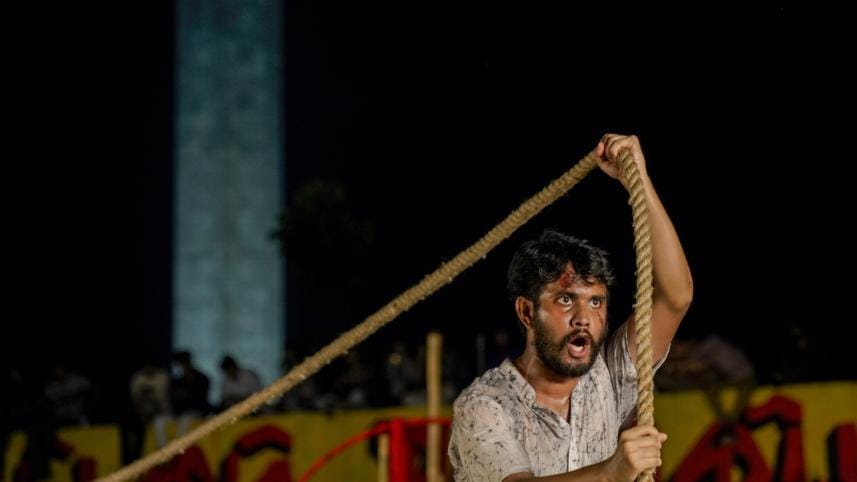
With their thought-provoking and experimental production "Praay Tin/Chaar Jon", Prochondo Collective offers a stark portrayal of the harsh realities faced by ordinary people under authoritarian regimes. The play examines how lives are lived and disrupted by the constant threat of extrajudicial killings, arbitrary detentions, state-enforced brutality, and the overall subjugation of the human spirit, which is surveilled and extinguished at will.
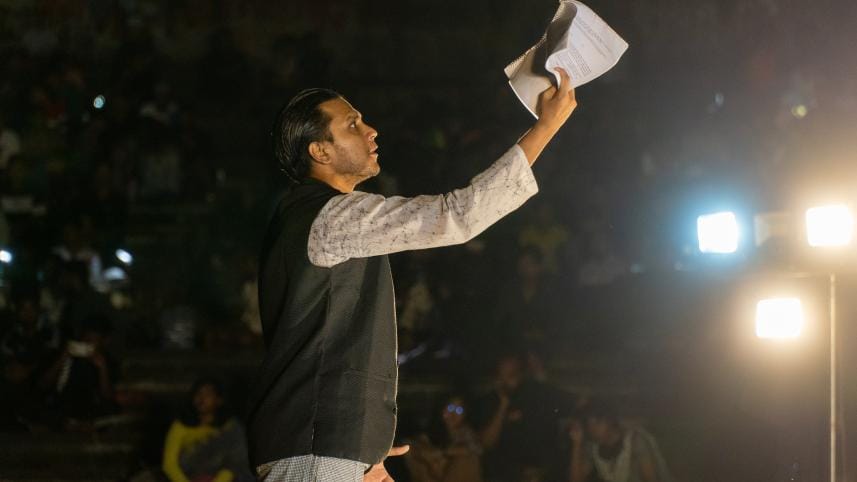
Written by Zahid Sohag and directed by Sarwar Jahan Upol, this absurdist play was performed in four shows last Friday and Saturday (September 27 and 28) at Mukto Moncho amphitheatre in Suhrawardy Udyan.
As twilight descended that day, an unusual gathering took place at Mukto Moncho—people from all walks of life came together: the young and old, theatre enthusiasts, passersby, street children, and tea vendors. For their debut production, Prochondo Collective staged "Praay Tin/Chaar Jon", with tickets priced at just Tk 10, or more if the audience wished to contribute.
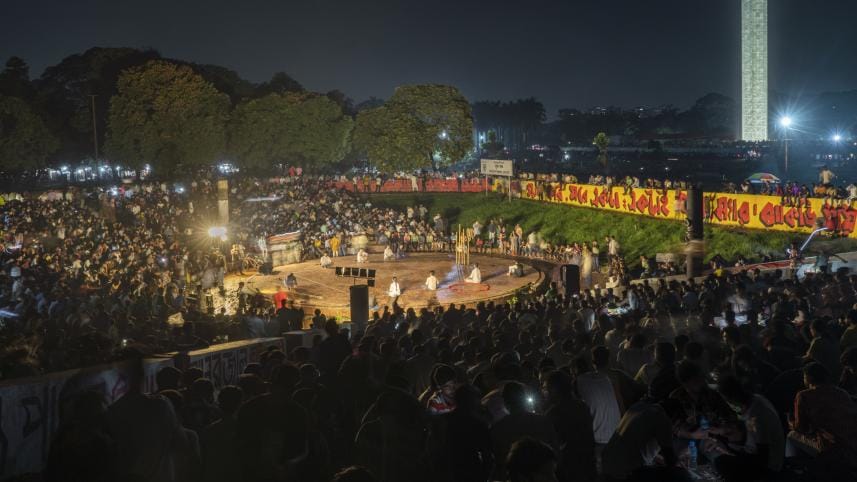
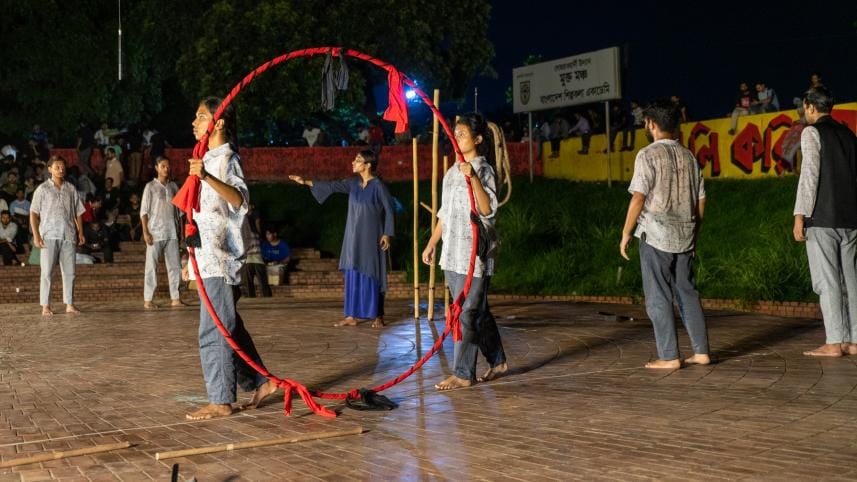
Originally written and published a few years ago amid the backdrop of enforced disappearances, the play was adapted to reflect the current realities of Bangladesh.
"When this play was first written, I think we were censoring ourselves. Even I wasn't immune to self-censorship. I constantly asked myself if I could write exactly what I wanted, and the answer was no. Even now, I'm not sure if I can. This is an eternal struggle for writers because true freedom in a society or state still doesn't exist. But it's the writers who must fight to create such a society and remain unapologetic," Zahid Sohag said.

"In my view, Bangladesh has become a place where you're either a killer or the killed. Our identity is being reshaped into this binary. On August 5, the nation was 'purified' through bloodshed. During the movement, we all dreamed of a free Bangladesh. But where is the country heading today? Can we speak freely? Can we question everything?" he asked.
"Writers, intellectuals, and conscious citizens must question those in power. If we don't, if we compromise, that power will become monstrous," he added.
Director Sarwar Jahan Upol described the play as laden with "gunpowder in every line." "If we, the performers, first internalise each line, we can then transmit its fire to the audience—so that if injustice unfolds before us in the future, we will be ready to ignite," he said.
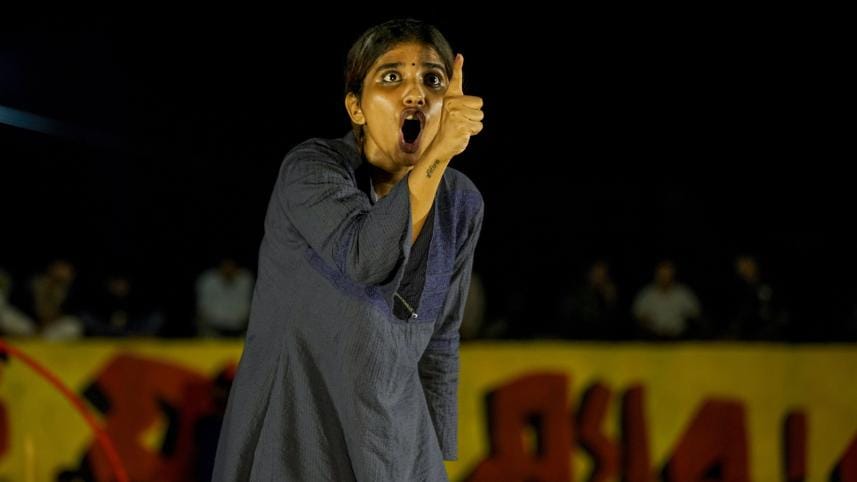
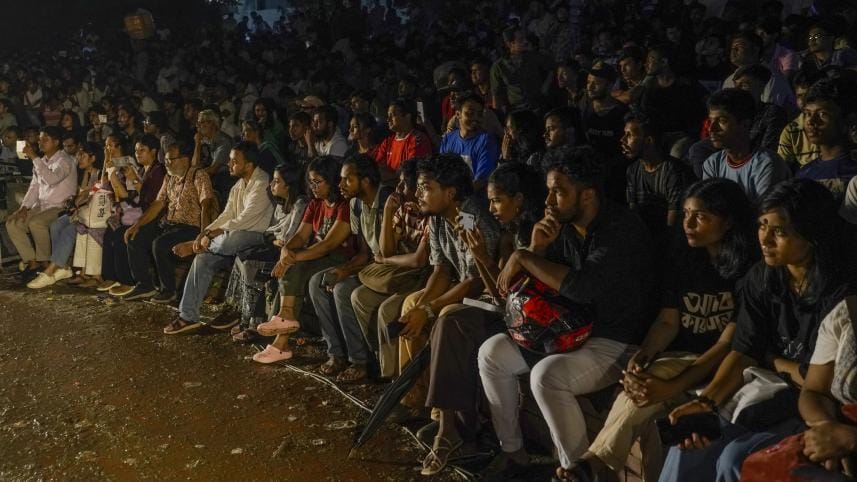
The play is dedicated to the martyrs of the July Uprising, the victims of enforced disappearances over the past 15-16 years during the former AL-led regime, and all those who have suffered injustice in the country.
Prochondo is a collective of young artistes, many of whom actively participated in the uprising that ousted the former prime minister Sheikh Hasina. Their personal experiences found expression in the play, including memorable dialogues from the uprising, such as "Hamak betak marlu kaan?" (Why did you kill my son?).

When asked why they chose to form this collective, the performers of Prochondo explained that they wanted to create a platform open to anyone who wishes to join, especially those ready to question authority.
"We are equals in this collective," said member Riasat Salekin. "I once chased the dream of changing the world with my art, but I soon realised there were forces preventing it. Over time, I became complacent, looking away from the suffering, from people being murdered and raped in the hill tracts. But July changed that. July grabbed me by the neck and forced me to see."
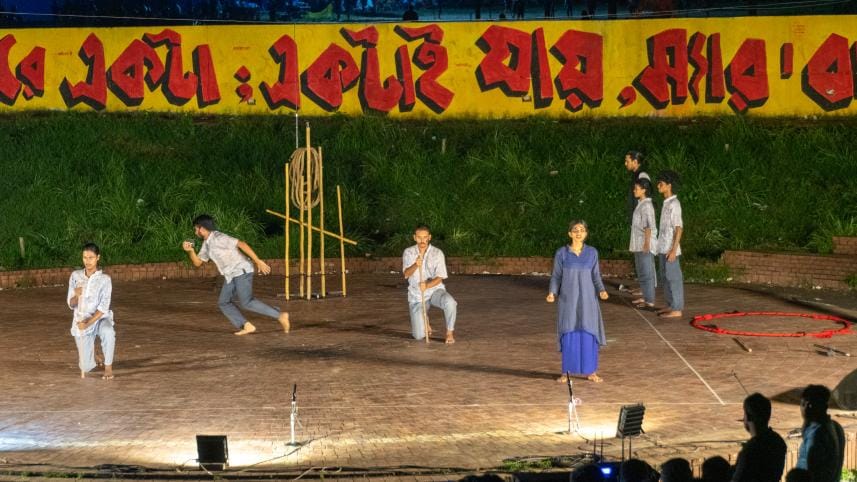
"The artiste and the activist are not separate; Prochondo Collective was born from that realisation," Salekin continued, recounting his experience on August 5, when many members were in hiding. "That's when I asked myself, what now? Has anything really changed?" he said. Prochondo exists to keep questioning power, he added.
Fariha Jannat Mim, another performer, emphasised the need to continue raising voices beyond the events of July. Both Jannat and Salekin met during protests, inspired by the work of Syed Jamil Ahmed.
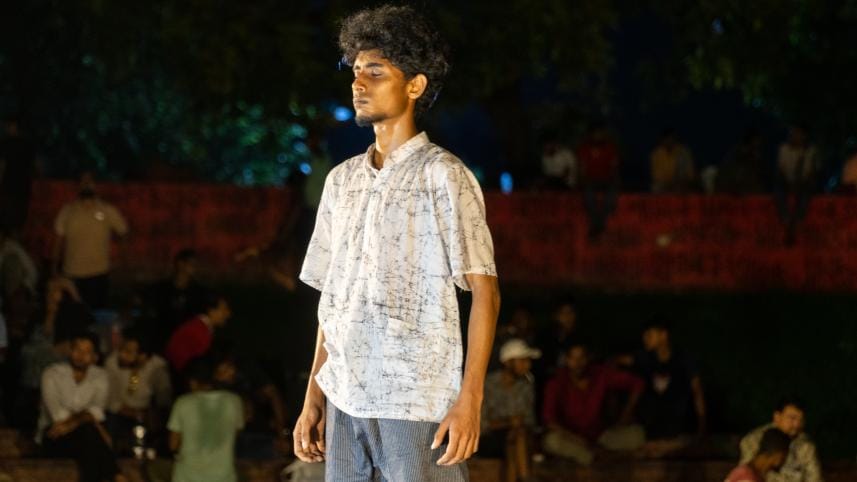
"We felt this play was timely and relevant to our current situation. We wanted it to reach everyone, regardless of economic status, which is why we chose Mukto Moncho as our venue," she said.
The play featured performances by Riasat Salekin, Fariha Jannat Mim, Jessica Jacinta Chiran, Farzin Fariha, Rabi Prarombho, Zordan Niloy, Swarup Ratan Lalan, Fahad Khan, and others.
Moving forward, Prochondo Collective hopes for continued support from the people. The play was funded entirely by the audience through crowdfunding, with a GoFundMe link available on the group's Facebook page.



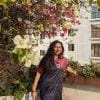
 For all latest news, follow The Daily Star's Google News channel.
For all latest news, follow The Daily Star's Google News channel.
Comments